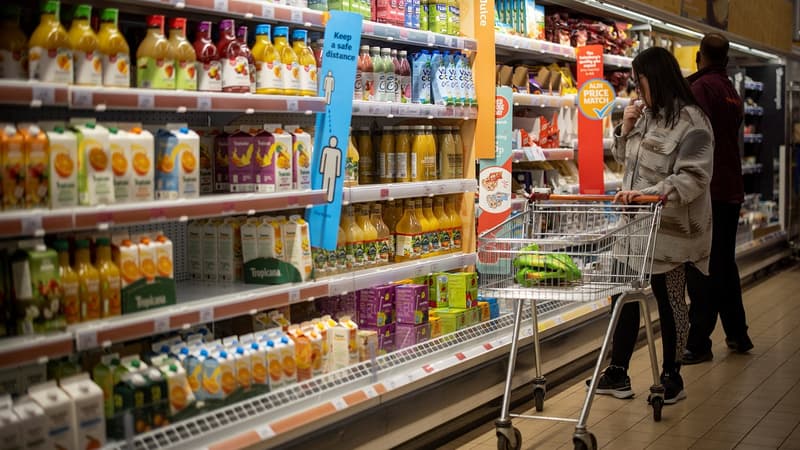UK inflation slowed slightly year-on-year in March to 10.1% from 10.4% in February, the Office for National Statistics (ONS) said on Wednesday, but the drop is smaller than expected and the rise in Prices continue to fuel a severe cost of living crisis.
“Inflation has moderated slightly”, with a notable drop in fuel and heating prices, “but it remains at a high level” and food prices “continue to rise strongly, with a record rise in prices prices of bread and cereals”, summarizes Grant Fitzner, chief economist of the ONS, on Twitter. Food inflation stood at 19.2% annual in March, that is, one point more than in February.
Inflation has been clinging for months above 10% in the country and is fueling wage strikes that are prolonged in many sectors: from public employees to railway workers, through postmen or drivers of the London underground.
Price increases had picked up in February, after 10.1% in January, and while inflation eased again in March, the drop is more modest than economists forecast, who had expected it to fall below the threshold for two digits.
Consumer prices will remain high
“Food prices, particularly fruit, vegetables and sugar, have risen as poor harvests in Europe and North Africa have reduced availability, and a weak pound has made imports more expensive,” analyzes the British Retail Consortium (BRC) merchant federation.
While “food price inflation is expected to ease over the coming months as we enter the UK (fruit and veg) growing season”, consumer prices “will remain high”, it warns in a statement Helen Dickinson, chief executive of the BRC.
This is enough to put pressure on the Bank of England, which has been raising its key rate since the end of 2021 to counter inflation, and encourage it to continue on this path, according to economists.
Persistent inflation “suggests the Bank of England will raise interest rates from 4.25% to 4.50% at its May meeting,” and that may not be the latest increase, sums up Paul Dales, an analyst at Capital Economics.
“We must continue our efforts to reduce inflation to take the pressure off families and businesses,” UK Chancellor of Finance Jeremy Hunt said in a statement, saying the country is on track to “reduce to half” price increases this year.
Source: BFM TV


